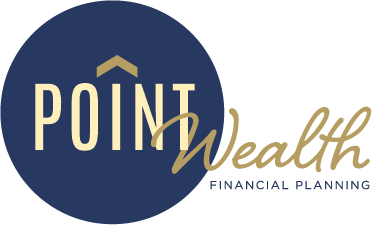
Money and Happiness or Broke and Frustrated: Financial Freedom
By, Jeremy Reif, CRPS
The media makes you feel like you have to have money in order to be successful in life or gain financial freedom, but you might also have heard the phrase that money doesn’t buy happiness. Where is the balance?
For those that have it, money’s not everything, for those that don’t, having it is. When you’re poor, I mean poor, when you are at this level of poorness, it consumes people. I mean people literally live and die for money and will do anything to get it. We see it every day, people hustling on the streets just to get a meal. This can cause anxiety, pain, frustration, and even anger.
On the other hand, going from rags to riches can also have a different effect. You don’t necessarily need to be rich, but when you have money or a little financial breathing room, not having to budget is one of those perks of having money. The hope is by being rich or gaining financial freedom this will relieve some of the anxiety, pain, or anger. The freedom of being able to move on from calculating and pinching every penny and budgeting every item to being able to afford some niceties.
Here is the balance, when we don’t have money, problems seem to revolve around it. Having money almost never fixes every problem in your life, but piling up some money seems like a good end game to relieve some of the pressure of daily life. Making the goal of being financially secure, will allow many to no longer make every decision solely based on money. Wouldn’t it be nice to say you don’t need the second or third job because you need the extra income, or even have to take on a job you didn’t want in the first place only because it pays better, not having to worry about the price of groceries to make sure you can afford them, maybe you can even splurge for something nice every once in a while.
Now, Imagine being at a place where you never had to worry or stress about money again. The steps to get there are simple, but it takes time and commitment.
No matter who you listen to. Some noobs, an influencer, or even a big-name guru like Dave Ramsey. Some of this could be similar advice and some might be new to you.
Step one:
Starting at the financial foundation and building yourself up: create an emergency fund. I don’t mean, to put this money in the cookie jar and hide it or put it under the mattress, those places are in reality accessible. I mean, this should probably be like what people did back in the olden days bury it in the mason jar out back and forget where you put it… haha just kidding, in a savings account at the bank would be a great place for the money.
A good starting point would be to save three months’ worth of your normal monthly bills, again this is saved for a true emergency. Have savings to fall back on in a true emergency, instead of like most people who are like F… Me! Bad S…. just seems to follow me around and have nowhere to turn.
Here is a real-life example. I live in WI, for those that have traveled through or know anything about WI, there are essentially 2 seasons, Winter and Deer season. Winter season tends to last about 9 months of the year and the warmer three months out of the year are, you guessed it, Deer Season. I joke, but not really. For about 9 months were all having to constantly worry about snow, sleet, ice, and slippery roads. Traveling in WI it is more of a necessity to have your own vehicle as public transportation in rural areas is not like other states. Sorry Dave Ramsey, if there is no bus or Uber, I guess we do need that car because biking or walking 30 miles to work uphill both ways haha. Anyway, I digress, traveling during the winter season can be brutal trying to not slip into the ditch or crash into another vehicle during these treacherous months. Then after it finally warms up, WI has a lot of farm fields and woods, and the deer appear on or around the roads. They are obvious road hazards. I wonder statistically speaking if WI has a higher accident rate than other states, but people in WI get into fender benders either with the crappy weather or with road deer, and occasionally cows. So just the other day, I got a message from a client saying that they had to replace their car this week because of a deer jumping out in front of them and they totaled out their vehicle. This obviously was unexpected and a not planned-for event. Yes, they had car insurance, but it doesn’t necessarily pay for the car that they need. They were letting me know that they had an emergency and were tapping into the emergency reserve. That is what the emergency reserve is meant for. Not for buying chips or Netflix, paying your monthly bills. Again, the Emergency Reserve, This money should only be used if, and when, the unexpected happens. When your life would otherwise become completely disrupted, that’s when you go to the emergency fund.
Why create an emergency fund in the first place? Because of Murphy’s law. To summarize, it says that everything that can go wrong will go wrong. Instead of using a credit card, or borrowing money when something goes wrong and getting further into debt, you’ll have something to fall back on. The great thing about the emergency fund is that it starts to give you that feeling of financial freedom. For the first time maybe in your adult life, you have some room to breathe. This step is the quickest way to finally start to gain some control back in your life.
Step two:
Pay off your debt. Dave Ramsey has become widely famous because of telling people to pay off their debt. Paying off debt is one of the predominant parts of the Ramsey baby-step process. So who is actually in debt? Only About 80% of American adults are in debt. What happened to the days, when people didn’t get something unless they had the cash to pay for it? Credit cards and other electronic forms of payment have become common, and we’ve just accepted this as the norm.
Debt is where so many people fall victim to the game. People buy things they really can’t afford. In today’s society, everyone offers a way to finance large purchases. Without even realizing it, they have payments to every Tom, Dick, and Harry. The problem with debt is that it restricts your ability to save. Far too often people then succumb to living so far outside of their means they end up living paycheck to paycheck and can’t break out of that trend.
The reality is when you’re paying a grand or two grand or even more on your mortgage, and then have student loans, credit cards, and your car payment they severely hold back the amount of money you can save each month.
Then why is it so important to pay off your debt? Why do people like Dave Ramsey preach this?
The proof is in math. I know math is boring, so let’s view an example. A normal 30/yr mortgage of $320k mortgage, 6% interest. If you make the minimum required payment each month for the next 30 years your interest payment over those 30 years is $370,682.20. If you borrowed the same amount and did a 15-year mortgage repayment schedule the interest is $166,061.53 which is less than ½. Now imagine, your credit score is not as good as it could be and your interest rate is at a higher percentage. This only exaggerates the numbers owed and the money potentially saved. The same principle applies to student loans, credit cards, auto loans, personal loans, and all loans. No wonder why step 2, interest owed ends up costing people thousands of dollars each and every year.
What’s the best way to pay off your debt early? There are many ways to accomplish this. The best part is, there is no right or wrong way. The best way is the solution that works for you and your family that you can stick to. My own personal take is backed by the math and is to attack the highest interest rate first and work my way down to the lowest rate or a rate that doesn’t give you any tax benefits. Once the highest interest rate debt is taken care of, take the same money that was going towards that highest rate loan payment and apply it to the next highest interest rate loan. Another term for this strategy is one that Ramsey has made popular” The Debt Snowball.” A famous way to tackle debt.
Here is a financial planning quick budgeting tip:
The easiest way to free up cash to start making extra payments is by using a budgeting plan. To jumpstart this process, try this unique retro budgeting idea. The system is to use cash only. To simulate this, I would urge you to take your debit and credit cards and lock them up someplace safe. The rule for those types of cards is that they can’t be used unless there is an emergency. Then, actually, cash your paycheck at the bank for cash. Keep this cash preferably in a safe, if you’re not putting it in your wallet, money clip, or purse. The rules for cash are, you can carry as much cash as you want and can go back to the safe as many times as you want or until the cash is gone. The caveat to receiving more cash is you have to give the safe a receipt for what your original cash was spent on. This helps for budgeting purposes. At the end of the week(s) and then the month you have to add up your expenditures.
The thing that is interesting about this cash budgeting idea is that people tend to spend less. Psychologically speaking it just tends to work and spend less. A reason for this might be like this example; pretend you decided that you need to have $100 cash on you for today and at lunch, you walk by a shirt that you feel you need. The price tag on the shirt is $75. You also know that you need to go to the grocery store on your way home from work and know that tonight’s meal and groceries will cost $45. Chances are, you pass on that impulse purchase of $75, knowing that you need to eat. Even though you could go home, grab the extra cash, and come back, most people do not end up getting the extra cash to buy the shirt. On the other hand, if you had your credit card with you, chances are you bought both the shirt and the groceries.
Step three:
Start a retirement fund. I remember as a kid watching a tv show and someone referred to their portfolio. I was like WTF is a portfolio? Retirement funds most commonly at a workplace are in the form of a 401(k). It is one of those things that you know you should do, tend to procrastinate because you feel like retirement is so far away and you haven’t done it yet, but eventually you’ll get to it. Personal finance is often about making short-term sacrifices for long-term gain. By saving a little bit each year you’ll be able to set yourself up for a proper retirement.
I still remember the day when I was in high school, and we had a guest speaker come into our class. This dude was wearing a 3 piece suit, hair slicked back looking all chill. He was a father to one of my classmates and he talked about the compounding interest of money. Then he went on to tell us how much it would take for us to invest if we started at age 18 to become millionaires. If we invested $100/mo and averaged a 10% rate of return until we retire at age 65, we would be millionaires. That was great advice, but I wanted a car stereo and was already in debt with my first car. Like many kids, back then $100 a month was a lot of money to me and was basically already spent in my mind before I even earned it as I had important things to get. Maybe today were would not be deemed as important and should have been labeled as a want.
When you invest in the long run, you’re not checking your account every day, every other day, you’re putting your money in, you’re making sure you have everything set, and then you’re checking it every once in a while. It should be more of a set-it-and-forget-it mentality. It is more important to make sure that you’re not stressing out every time the stock market’s shaky. When 2001, 2008, COVID-19 hit, a lot of people lost money on paper, but if you’re investing for the long term, that’s not going to matter at all, because, in a few decades, chances are you’re going to eventually make your money back.
Alright, so for me personally, I find it important to invest in low-cost solutions. Years ago, everyone raged about mutual funds, that trend has sailed, now the new thing is zero-fee mutual funds or low-cost exchange-traded funds.
A lot of the financial advice that I see out there for free to the public is to pick a fund that is or mimics the S&P 500 as it tends to average close to 10% when you have 30+ years to let it ride. Now, I don’t mind this advice for people starting off that have never invested before, but what happens when real-life personal events take place or the stock market crashes? Say you started to invest $150/mo. You have been doing this for 20 years and the fund is now worth a quarter of a million dollars. This advice says no matter the markets, let it ride and it will be ok. In the last few recessions, the market lost fifty percent. Now that is a lot of cheddar to lose.
Most people once they have a sizable account don’t want to start over or have different feelings for example if you lost one-half of $100 is different than one-half of $100,000. It is the same percentage, but they would rather preserve and protect or take an appropriate amount of risk. Some might even say calculated risk. From what I see in the real world, at this point, many feel this imaginary crossroads. If I knew that the markets were going to suck, chances are I might temporarily make an adjustment, so I don’t watch my investments freefall. Many will seek out professional help. A.I. or Robo advisors have become popular in the last several years. Others will seek out professional money management to navigate the waters. Others will continue the D.I.Y. thing. Now there are many variables that will factor into your own investment strategy, like your age, your income, how much money you think you’ll need when you retire, and how much risk you’re willing to tolerate.
Full Disclosure: Please do your research before investing. I’m not your financial manager, investor, or fiduciary. Read up and decide based on your life circumstances and goals. Better yet, hire a fiduciary to give you specific advice for you.
Step four:
Invest in yourself. Have you heard the saying, “Knowledge is power?” Our school system is great for bringing people into today’s society and teaching them tools to succeed in life and work but fails in the personal finance category.
The point is, if we are taught how to properly prepare ourselves for the real world about money, maybe 80% of people in debt would be a smaller percentage. No matter where we are in our financial journey, we should always invest in knowledge. Read a book, listen to a podcast, watch an educational video, or work with a financial professional. Chances are, you will learn to be more prudent with your personal finances.
This will help you set your priorities every year as we can sometimes get distracted by shiny objects. Once you’ve got a solid emergency fund, pay off your debt, got your retirement fund started, and invested in your own knowledge you’re on your way to financial freedom, and it won’t take finishing your retirement fund to finally realize that having money’s not everything.
I hope these 4 steps help you on your financial journey.
Stock market S&P 500 30 yr ROR https://www.sofi.com/learn/content/average-stock-market-return/#:~:text=Average%20Market%20Return%20for%20the%20Last%2030%20Years&text=Looking%20at%20the%20S%26P%20500%20for%20the%20years%201992%20to,%25%20when%20adjusted%20for%20inflation).

